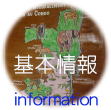Village
life −Social and political issues
Diet member's visit Dr. Leon Alfred Opimbat
Bambenga
Ebola hemorrhagic fever -Outbreak and the end
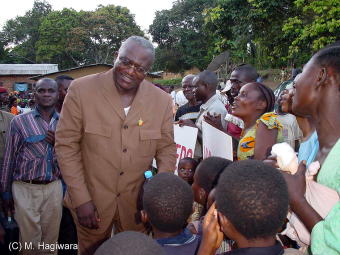
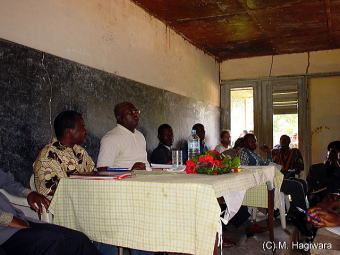
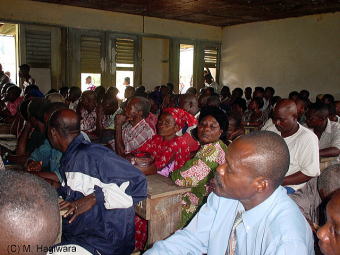
On the next day of his arrival, there was a meeting at the school over four hours. The room was full of people, who were earnestly listening to Dr. Opimbat's report on the national and local budget, issues under discussion in the national assembly, and the election.
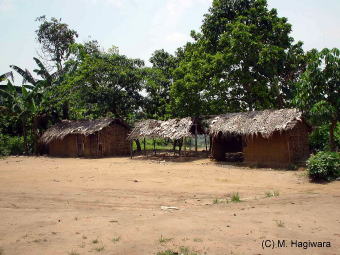
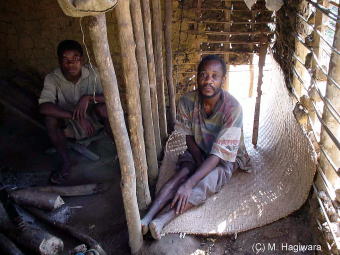
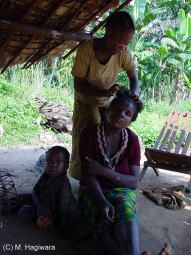

There was an outbreak of Ebola hemorrhagic fever in Mbomo in November 2003, which was the third time there. (Please refer to the web site of Medecins Sans Frontieres (MSF) regarding the way how it was controlled.) It is a disease with high mortality rate of 50 to 90 % and can be infected trough body fluid including sweat. Regardless of repeated advices to escape from the village by the Japanese Embassy to Gabon, I stayed in the village, avoiding contacts with sources of infection.
As soon as Ebola was suspected by two deaths, villagers stopped shaking hands which they do normally, and avoided touching others. Schools and churches where a lot of people gather were closed. The village became very silent: Some people begun to live in hutches in their crop fields deep in the forests, others tried not to go out and stayed inside their houses. My house was right outside the village, so I went out only for the forest where I did not have to pass through the village. Medical staff from WHO and MSF came and the situation was under control to prevent expansion of the infection. Displacement between other villages was restricted.
Ministry of Health came to Mbomo by plane. According to a villager who attended the meeting with Minister, he gave advices that they must not touch dead bodies, and should not depend on bushmeat but promote breeding livestock.
Succession of deaths stopped when entering December, and it was finally announced that 29 deaths occurred, and the source of infection was bushmeat of a wild pig. Those who died belonged mostly to the same families; one family lost as many as 13 members. Since they have a custom to wash dead body, it sacrificed women who played a role to take care of patients. Children were also vulnerable with less resistance. On the Christmas Day churches held carol service sermon, and the village was reenergized. Schools were opened in January 2004.
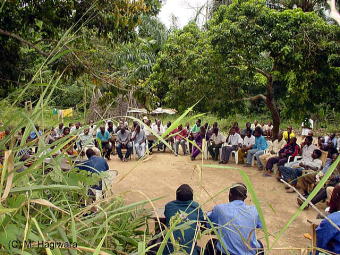
A meeting on Ebola was held in the village in mid January (Photo). Among three hunters who went into the forest, two had died of Ebola first but one survived, and was arrested for poaching of elephants. He was released from jail and made a report in detail how they spent the time in the forest. It surprised me that participants asked many questions which were dealt and proceded by village elders very democratically. However, unfortunately most of the remarks were made in the local language Mboko and I could not understand well. The biggest questions to villagers were, why some died and others did not albeit they touched the dead bodies at the same funeral, and why only Mbomo experienced Ebola three times albeit bushmeat was also frequently eaten in many other villages, which could not been made clear due to absence of expertise.
Daily diet Work 1 Work 2 Houses & public facilities Ceremonial functions
Entertainment Fashion & Children Social and political issues


